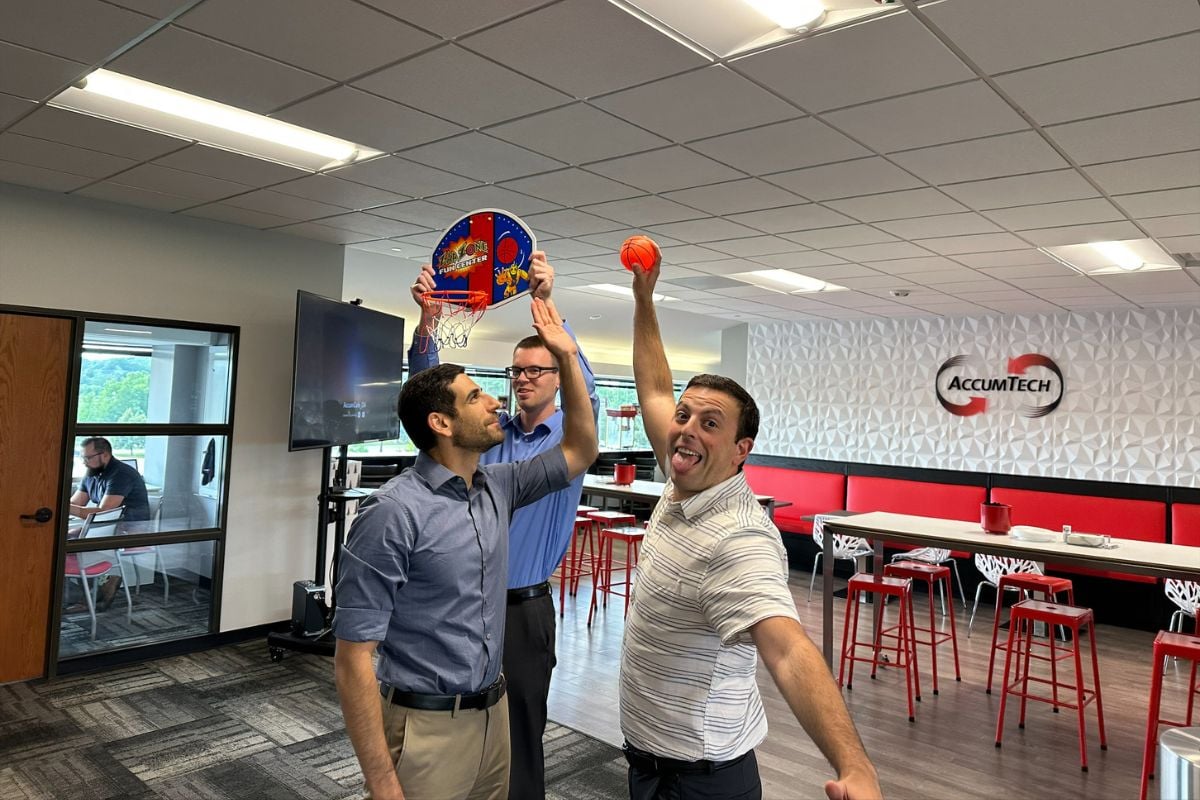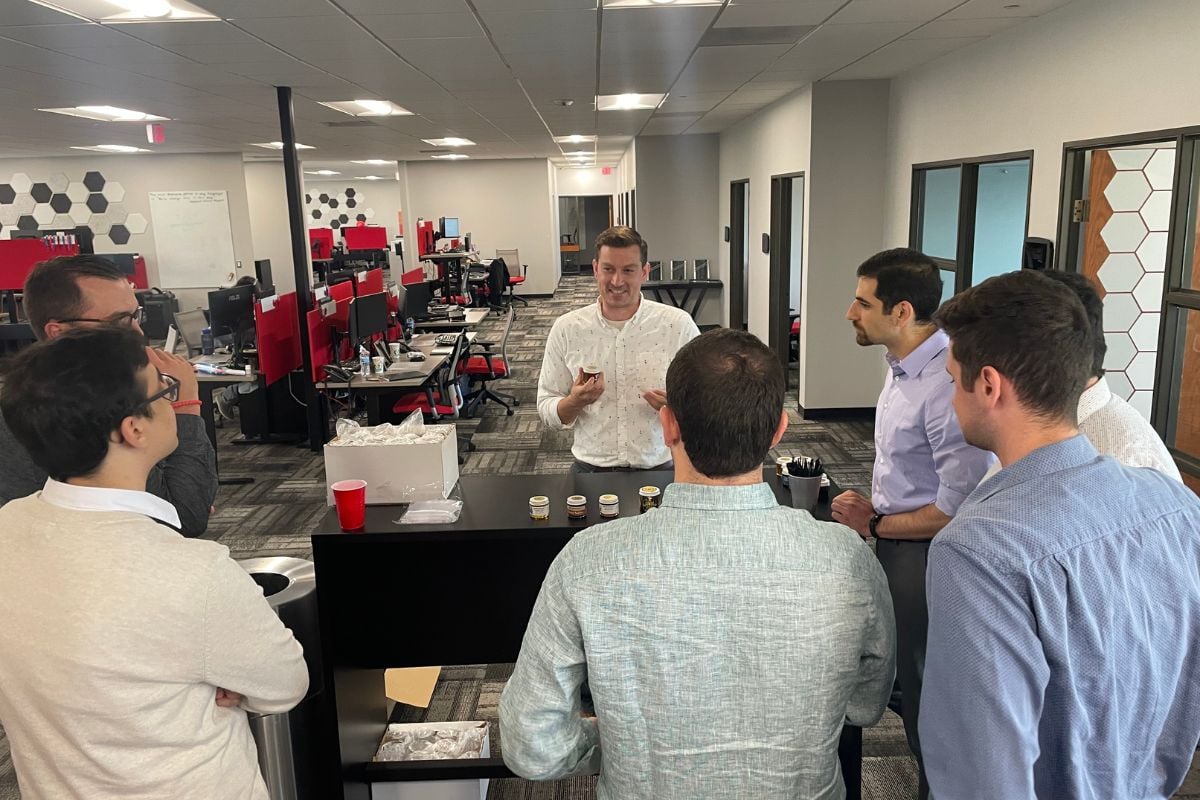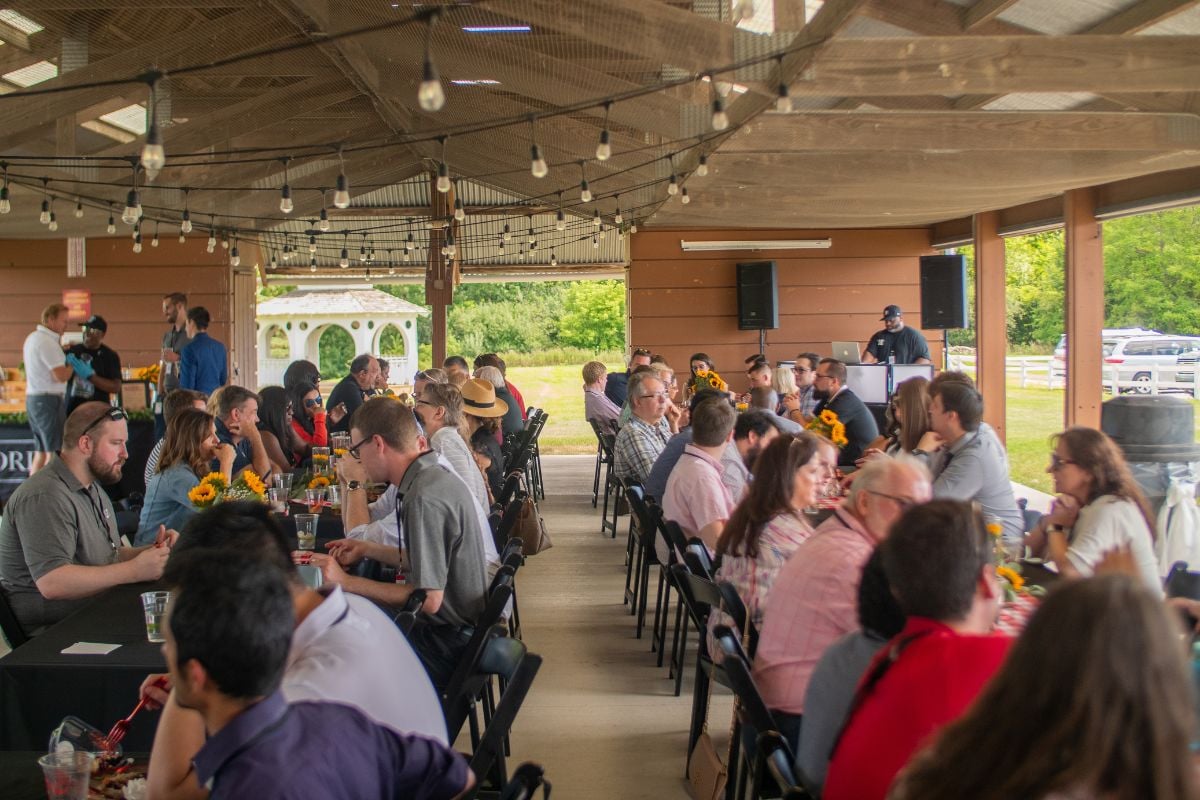Working on a large development team at a tech company can be great, but sometimes you can get a little lost in the crowd. That’s not the case at AccumTech.
Building custom technology for health insurers, AccumTech helps simplify the data exchange process for healthcare service providers.
Health insurance companies use many vendors, and there needs to be clear communication between them. AccumTech is the go-between for vendors and health insurance providers to translate data for better communication, and ultimately making sure out-of-pocket expenses and deductibles are correct.
That’s where the development team comes in. They’re building the platform that translates all this data and disseminates it among vendors.
We chatted with three people on the dev team about their experience to get the inside scoop on a day in the life of an AccumTech developer.
Meet Dan, Chris and Brad

Dan, Chris and Brad
Dan Haddad, who has been a software developer at AccumTech for nine years now, leads the Delta software development team. Chris Baldwin, who started at AccumTech as an intern, now works full time as a software developer on the Bravo team. And Brad Sloan is the product specialist, overseeing the development work and processes.
You can see that AccumTech has a fun-loving culture, and the developers are no strangers to that.
Hands-On Development
Software developers at AccumTech are divided into four small teams (a team lead with four to five additional software developers), which gives everyone a chance to make a real impact.
“Development work is very hands-on,” says Chris. “Most days when we come in we are hitting the ground running, tackling projects right away.”
Developers spend a lot of their time writing code, and less of their time getting bogged down by meetings. That’s not to say there’s no collaboration. The team is highly collaborative and often utilizes pair programming stations across the office to get tasks done. And having a hybrid office policy helps foster that collaboration.

Image courtesy of AccumTech
The four software development teams are also cross functional, though have the ability to stand alone. Dan says any team could take a project from soup to nuts, with people from all types of backgrounds and experience. Coding standards and best practices are the same among teams, but the smaller organization makes the teams easier to manage, and gives developers more hands-on work.
“One of my favorite things about working here is the autonomy and the openness to explore new technologies,” says Dan. “The team encourages and empowers us to learn new technologies and build our skills.”
The team works with a modern stack: React for front-end, C# for backend, and SQL for the database. In addition to this, the team actively explores alternatives for their tech stack, and is always excited about learning new skills. And anyone can come to the table with new ideas or introduce a new technology.
In addition to lunch-and-learns and everyday knowledge sharing, the dev team also attends CodeMash in Sandusky, Ohio. The multi-day conference is a fun way to learn a lot, and get to hang out as a team.

AccumTech dev team at CodeMash
Working on small teams, the developers have become close-knit, and really think of themselves as a team of friends.
“We’re pretty unified, even though we have four distinct teams. The software is ours to share and grow together,” says Chris.
“It’s like we’re on a basketball team. Every week we play a game, and we practice individually to work on our own skills. Then we come together and apply those skills toward a common goal. And we each bring our own skills to the court,” says Brad.
Agile — No, Really
A lot of dev teams claim to be agile when in actuality they’re not. AccumTech is so agile it almost doesn’t feel like they are, says Brad.
The team runs a SCRUM/Agile methodology that works in 2-week development sprints with bi-weekly backlog groomings and sprint kickoffs.
Brad, as a project specialist, helps oversee product roadmaps, SCRUM processes, user experience, and product testing.
“We’re so well-versed in this process that we move quickly through the steps, but we never sacrifice quality,” says Brad. “We always value high quality over speed.”
Mandatory unit testing, peer reviews, and pair programming really help ensure this level of quality. And often the product is tested by the stakeholders and end users themselves. Once they sign off on them, they get pushed to production.
“Our product is software, which is a living, breathing creature,” says Brad. “It needs to be updated when things become out of date. We try to get ahead of those, in addition to launching new product features.”

AccumTech Team Picnic
Exposure & Impact
While managers help the SCRUM/Agile process run smoothly, developers enjoy a lot of autonomy on the team. And it’s led them to have great exposure and make a real impact.
“I’m not micromanaged, and I don’t micromanage my team,” says Dan. “We know the problems we need to solve, and explore creative solutions to get it done. We all have the autonomy to approach it creatively.”
This applies both in and outside of projects. If there’s something you’re interested in, AccumTech empowers you to pursue it, and refine and learn new skills.
“About six years ago we wanted to start a front-end tool for users,” says Dan. “I had some time on my hands, so I became the front-end guy. I got a lot of exposure and experience working with something new and spearheading that project.”
Chris shared a similar sentiment: “There’s an opportunity here to do anything and everything. You can really build your own career path here. You can choose your own adventure.”
If you’re looking for an exciting adventure on an impactful and fun dev team, check out open developer roles at AccumTech and apply now.





.png?width=50&name=Erin%20Gregory%20(1).png)



